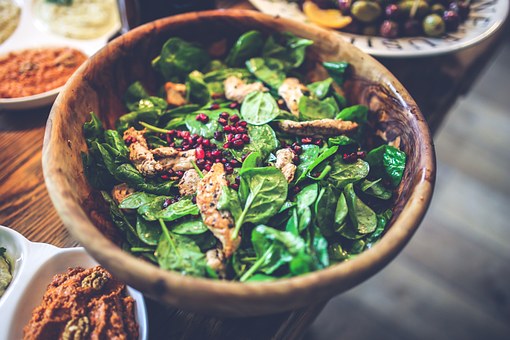When you are learning the ropes of your new lifestyle of being a vegetarian, every aspect of life will be affected. From work to home life to eating out, you have to have a strategy for how to maintain your vegetarian discipline and still enjoy these different situations of life that are important to you. One of the situations we all find ourselves in, albeit perhaps infrequently, is when you are a house guest of a friend or relative. In that situation, you are going to find yourself under the hospitality perhaps of a person who is not a vegetarian. So you have to find a way to keep your diet healthy and proper and still be a good house guest.
While your desire to live a life free of the eating of meat and perhaps a meat byproducts like eggs and milk is not a eating disability, it is an eating limitation. If you had a food allergy, perhaps to shell fish and you were going to stay as a house guest with someone, you would not feel any guilt letting them know your problem. If you can put your vegetarian lifestyle in that context and prepare for your visit accordingly, there doesn’t have to be any “stigma” or guilt or problems bringing up your dietary needs with your host.
Your host, after all, naturally wants you to enjoy your stay in their home. Anyone who is hosting has a natural instinct to make your stay comfortable and perfect. You can capitalize on that instinct and be polite about the desire your host has to make your stay go well but working with your host to let him or her know about your vegetarian diet and how it might impact food planning.
When you get the invitation to come for a stay, that is the time to discuss what you can and cannot eat in your vegetarian discipline. If you just avoid meat and not dairy and meat byproducts, it is very likely your host or hostess can prepare their regular meals but also put together a small main dish that fits your diet needs. And you can enjoy the vegetable side dishes all you want so by working with your hosts, you can easily integrate how you eat into their meal planning and not disrupt the visit.
But also be aware that there are items that your host may not supply that you may wish to bring with you or go get after your arrival. If you need soy milk because cows milk is not part of your diet regimen, by all means bring that in so your hosts are aware you are taking care of your own needs. Just let them know what you are providing for yourself and if the communication goes well, you can be accommodated and your hosts will be grateful that you did not see it as their job to provide for every aspect of your vegetarian program.
The other side of being a good house guest and not letting your vegetarian way of life be a problem is to be both open about your discipline and not judgmental or “preachy” to others about the fact that they have not made the same diet decisions you have made. In fact, you might even offer to prepare an entirely vegetarian meal for the host family and your own one night just to demonstrate to them just how delightful and tasty meat free eating can be. You may be surprised just how interested and fascinated your friends and family are about your diet and why you are a vegetarian. And by being friendly, open, loving and easy to talk to, you make the visit more interesting, fun and warm and you may even be able to educate your hosts and maybe your own family about why your vegetarian way of life is a good one.




